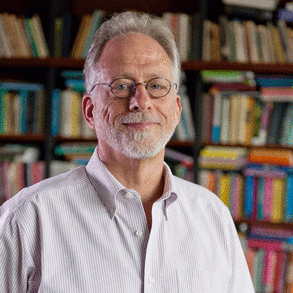Becoming Human: A Theory of Ontogeny

Description
Michael Tomasello is Professor of Psychology and Neuroscience at Duke University. Upon earning his PhD from the University of Georgia in 1980, Dr. Tomasello became an assistant professor, and later, full professor of psychology at Emory University, where he also served as an adjunct professor of anthropology. He accepted a position in 1982 as an affiliate scientist in psychobiology at the Yerkes Primate Center, where he stayed until 1998. From 1998 to 2018, Dr. Tomasello served as codirector of the Max Planck Institute for Evolutionary Anthropology. During this period, he was also an honorary professor of psychology at the University of Leipzig and co-director of the Wolfgang Köhler Primate Center in Leipzig. In 2016 he joined the faculty at Duke. Dr. Tomasello’s research on great apes and children addresses a fundamental question: How do humans differ from other great apes in cognition and sociality? By applying a comparative and developmental approach, his studies on the psychological processes of social cognition, social learning, cooperation, and communication shed light on human uniqueness as well as on the cognitive abilities of our closest ape relatives. He is author of numerous books, including The Cultural Origins of Human Cognition (1999); Why We Cooperate (2009); A Natural History of Human Thinking (2014) and its companion volume A Natural History of Human Morality (2016); and his most recent work Becoming Human: A Theory of Ontogeny (2019). His honors include the Royal Netherlands Academy of Arts and Sciences’ Heineken Prize for Cognitive Science (2010), the British Academy’s Wiley Prize in Psychology (2011), the American Psychological Association's Distinguished Scientific Contribution Award (2015) and election to the National Academy of Sciences in 2017.
